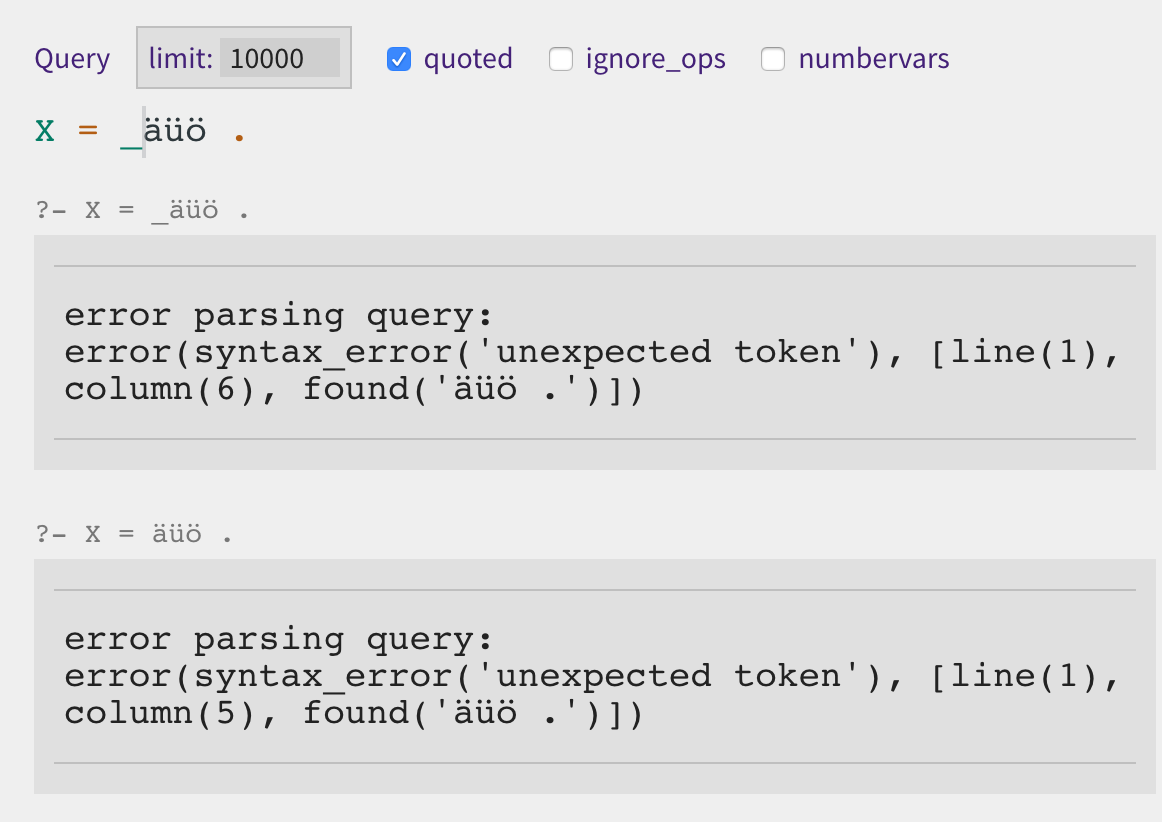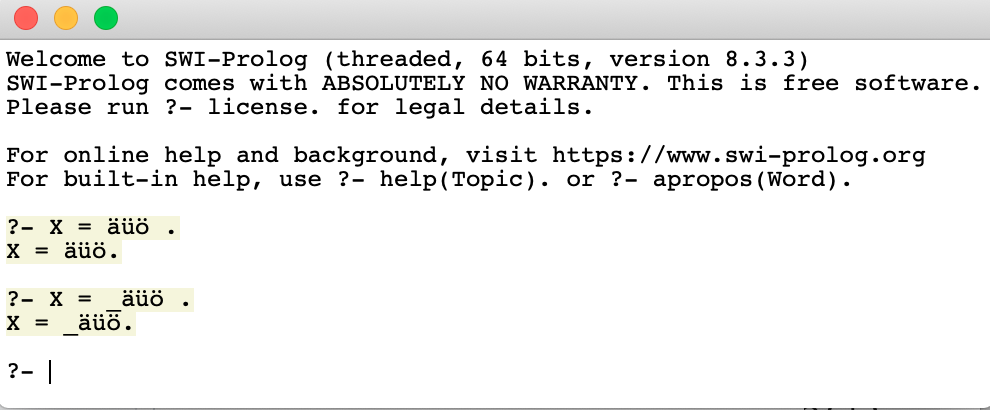how about extending unicode to names
See original GitHub issueI tried an atom name and a variable name:
?- X = _äüö .
error parsing query:
?- X = äüö .
error parsing query:
Didn’t work:

In SWI-Prolog the same works:
?- X = äüö .
X = äüö.
?- X = _äüö .
X = _äüö.

Issue Analytics
- State:
- Created 3 years ago
- Comments:8
 Top Results From Across the Web
Top Results From Across the Web
Unicode Character Encoding Stability Policies
Unlike many other standards, the Unicode Standard is continually expanding—new characters are added to meet a variety of uses, ranging from ...
Read more >List of Unicode characters - Wikipedia
As of Unicode version 15.0, there are 149,186 characters with code points, covering 161 modern and historical scripts, as well as multiple symbol...
Read more >Unicode Chart
Position Decimal Name
0x0000 0 : NULL
0x0001 1 : START OF HEADING
0x0002 2 : START OF TEXT
Read more >Get unicode name for characters - Using Swift
Unicode gives names for Unicode scalars, not characters (extended grapheme literals). You can obtain the Unicode name for a scalar using the ...
Read more >Unicode Character Names by Graham Nelson
This extension was mechanically generated from the Unicode 4.1 draft. ... If names for Unicode characters outside these ranges are needed, use the...
Read more > Top Related Medium Post
Top Related Medium Post
No results found
 Top Related StackOverflow Question
Top Related StackOverflow Question
No results found
 Troubleshoot Live Code
Troubleshoot Live Code
Lightrun enables developers to add logs, metrics and snapshots to live code - no restarts or redeploys required.
Start Free Top Related Reddit Thread
Top Related Reddit Thread
No results found
 Top Related Hackernoon Post
Top Related Hackernoon Post
No results found
 Top Related Tweet
Top Related Tweet
No results found
 Top Related Dev.to Post
Top Related Dev.to Post
No results found
 Top Related Hashnode Post
Top Related Hashnode Post
No results found

@triska I found already an issue about quoted strings:
writeq should escape non-printables, not only quote them https://github.com/tau-prolog/tau-prolog/issues/195
I made on purpose an ä, ü, ö example in my Unicode request. In Maori you have:
But you don’t have to go to New Zealand, to find non-ascii in the alphabeth. In Switzerland/ Germany/Austria there are ä, ü, ö, and
they are not homoglyphs to a, u, o. You get different meaning with and without them. Here is an example:
So be careful with any sanitizing, you might erase meaning.